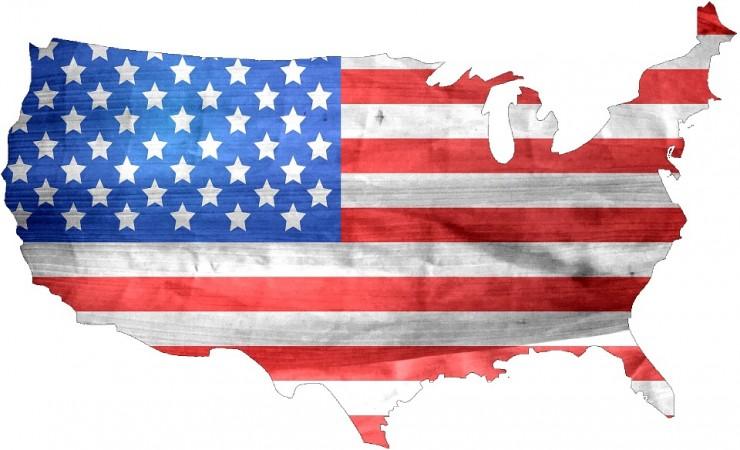
While Trump Vs Clinton showdown is, of course, the biggest event on Tuesday in the United States, the day also brings other big changes in the country. Voters in America will decide ballot measures on issues that have the potential of altering millions of lives.
Here are the 11 issues on state ballots that could change America:
- Cheaper Pharmaceutical Drugs and True Universal Health Care (California and Colorado):
California's Proposition 61, if it comes into effect, would significantly lower the prices of pharmaceutical drugs in the state as it would mandate state agencies to purchase medicine at a price no higher than what the Department of Veterans Affairs pays for them. Big Pharma has spent over $100 million trying to fight the initiative.
In Colarado, Amendment 69 may pave the way for voters to enact a more inclusive universal health care system as it would direct the state to adopt a single-payer plan. Democratic consultants were brought on board by the health insurance industry to try to stop the push.
- A Different Way to Vote That Busts Up the Two-Party Duopoly (Maine):
Maine, a state where independent candidates are popular, will have a unique opportunity to enact a ranked-choice voting system that may empower voters to rank their preferences between different parties and candidates rather than just one candidate at the ballot. Maine may become the first state to empower voters to vote for third-party and independent candidates without worrying about viability. If no candidate receives the majority of first-preference votes, then the candidates who finished last are eliminated each round until the winning candidate has the majority of votes.
- Curtail the Influence of Money in Politics (South Dakota, Missouri):
Voters in South Dakota will focus on the South Dakota Government Accountability and Anti-Corruption Act. The measure would change status quo in South Dakota by limiting the gifts an individual lobbyist can give a lawmaker to a value of $100 a year. South Dakota is the only state in the US where lobbyists can give an unlimited number of secret gifts to lawmakers.
In Missouri, voters can cap donations to individual candidates to $2,600 with Amendment 2. Currently, candidates can rake in virtually unlimited contributions from megadonors. The governor's race, for example, has been the nation's most expensive, topping $50 million in spending.
- Boost the Minimum Wage, or Lower it for the Young (Arizona, Colorado, Maine, South Dakota, Washington):
While South Dakota is asking voters for permission to lower the state minimum wage from $8.50 to $7.50 for workers under age 18, Arizona, Colorado, Maine, and Washington will give voters the choice to raise the minimum wage.
- Expand Charter Schools and School Takeovers (Massachusetts, Georgia):
Voters in Massachusetts will decide on raising the state's charter school cap and allow up to 12 independent charter schools to be established each year. This has been flagged out by Massachusetts Democratic senator Elizabeth Warren who said that the initiative would help drain funding away from traditional public schools. In Georgia, voters decide on the contentious Amendment 1, which was opposed by teachers, who see it as a way of undermining local control of public education. The amendment would empower the state to take over what it deems to be failing schools and potentially shut them down or convert them into charter schools.
- Legalise Marijuana (California, Massachusetts, Maine, Arizona and Nevada):
Five states are looking at legalising recreational use of marijuana. The ballot measures would allow states to regulate marijuana sales and generate tax revenue. Three states — Montana, Florida, and North Dakota — are looking at legalising medical marijuana.
- Background Checks for Guns and Other Restrictions (California, Maine, Nevada, Washington):
California, Maine, and Nevada have ballot measures that would improve background checks for gun purchases or for the purchase of ammunition. In Washington, voters would weigh in on an initiative that empowers judges to remove access to firearms if an individual was deemed a danger to themselves or others.
- End or Restore the Death Penalty (California, Nebraska):
California and Nebraska are revisiting whether prisoners should be subject to capital punishment. In Nebraska, voters are being asked to overturn the death penalty ban passed by the state legislature in May 2015.
- Ensure Rights for the Incarcerated (Colorado, California, New Mexico):
In Colorado, voters may forbid authorities from forcing prisoners to do unpaid labour and remove language about slavery from the Colorado constitution that the head of the state's American Civil Liberties Union called "archaic and offensive."
In New Mexico, voters decide if they are to prevent officials from keeping people in jail solely because they can't pay bail, and allow for defendants who are proven dangerous to be denied bail entirely.
- Protect Animals (Massachusetts, Montana, Oregon):
In Massachusetts, animal rights is on the ballot and voters will decide if they want to ban sale of eggs, veal, or pork from farms where animals are kept in spaces so small that they cannot stand up or move around freely. Similarly in Montana, voters decide to impose a ban on animal traps on state public lands. In Oregon the question is on the prohibition on the sale of products made from 12 types of animals, including lions, elephants, and sea turtles. Exemptions would apply for inheritances, antiques, certain musical instruments, and members of Native American tribes.
- Raise Taxes (Oregon, Washington):
Oregon is set to decide if it wishes to increase the corporate gross sales tax. In Washington, voters are conflicted over establishing a carbon tax.

















